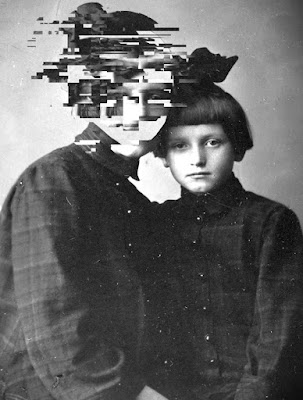Fragmented Self
Like attracts like. Fragmented attracts fragmented, while whole attracts whole.
This is true of all non-obligatory relationships (non-familial) and serves to highlight a spectrum which runs from excessively fragmented to completely whole.
Nobody is completely whole nor entirely fragmented. We all have our insecurities, shadows, defects, fears, etc. We all have our emotionally chaotic moments, yet, some are more prepared than others to endure these moments (and the skills, or lack thereof, almost always stem from childhood conditioning).
The chief rule of intimacy is that, if you cannot be intimate with your 'self,' intimacy will be impossible with another. If outside distraction is your primary preoccupation then, make no mistake, you are seeking to avoid engaging your own psycho-emotional fragmentation and discovering a greater wholeness (and the modern world we exist in thrives off disengaging you from your 'self').
The chief modus operandi of a fragmented 'self' is to locate the one who will 'complete' them and unite all their disparate, chaotic parts into one whole. Their unconscious prime directive is, "I need you to complete me, because I am in pieces" and this obviously places an impossible burden upon the other. Yet, the other is, at the same time, heeding the same directive and this is why fragmented relationships are always destined to fail.
The very idea that you need someone else to make you happy is patently absurd, because it is completely impossible for another to consistently make you happy.
Hence, a recipe for disaster, we are two fragmented souls whirling uncontrollably toward an obvious destruction, each demanding the other save them from their chaos, which means that neither will be saved and the relationship must be shattered. Because I no longer make you happy (the primary goal of this subconscious contract of 'completion') you must seek another who will conform to the "happiness" directive that I failed to fulfill and that, essentially, no one could fulfill but YOU. Nevertheless, we will both move from one relationship to the next, seeking the one who will complete us (serial monogamy), but never finding completion.
Whole people, on the other hand, have achieved a large degree of completion entirely on their own. They have engaged the ongoing process of 'completing' themselves and their lives are enlivened through this process. Their prime directive is, "I do not need you to complete me, but I want you as an addition to my current level of completeness." They have found the way to their own happiness and are quite secure in identifying and working through their insecurities. They are open to seeing their faults and find strength in their vulnerability. They fully understand that no one is responsible for their happiness but themselves. Hence, you want me as an addition to your happiness, but do not need me to make you happy and your attraction to me is because I feel the same.
The concepts of "need" and "want" highlight the difference between unhealthy mutual dependency and healthy mutual respect, because anything you need and are dependent on, (other than the basics necessary for survival), will eventually destroy you.
Whatever maladaptive relational patterns you do not identify and come to terms with in one relationship will become immediately manifest in the next relationship and so on, ad infinitum, ad nauseam.
Hence, a recipe for a healthy and harmonious interdependency with another is when we place no burdens on each other to provide for our happiness, but remain in the the process of engaging it for ourselves. We can revel in the discoveries we each attain and support one another in our respective process.
Subscribe to:
Post Comments (Atom)

No comments:
Post a Comment